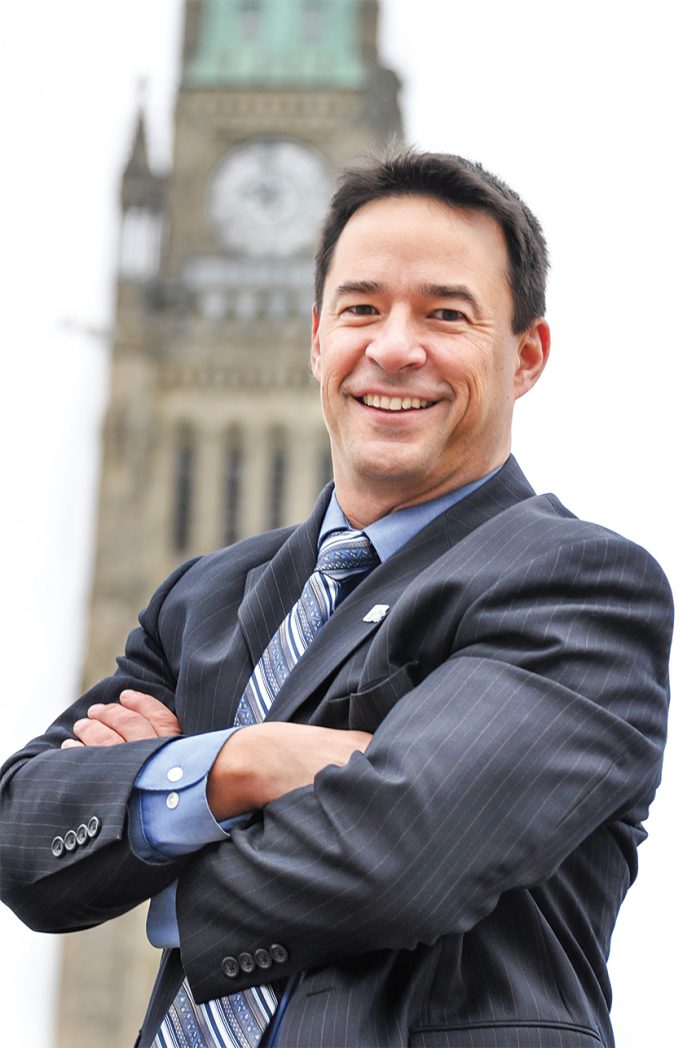By Kevin Lee, CEO, CHBA
CHBA’s call for federal leadership to remove the barriers to getting more homes built has gained significant traction in recent months.
In mid-September, the federal government revealed that it will remove GST on new purpose-built rental (PBR). The welcome exemption fulfills a long-standing ask by CHBA, which was a focus during CHBA’s Day on the Hill that earned plenty of media traction over the summer. Through the spring and summer, CHBA brought the issue and recommendations to Sean Fraser, the newly appointed Minister of Housing, Infrastructure and Communities, as well as the Minister of Finance’s office, CMHC, Finance Canada, and Infrastructure Canada, leading to this successful outcome.
Key asks
The federal government’s Fall Economic Statement (FES) also delivered on some of CHBA’s key asks. After numerous meetings with the Canada Revenue Agency (CRA) and the Finance Minister’s office, the government signaled its intention to make changes to the Underused Housing Tax (UHT), noting that it will accept feedback through a consultation process. Given the challenges the UHT poses for members, CHBA will continue to push for an industry exclusion from the UHT filing through the consultation.
The government also unveiled plans to establish the Department of Housing, Infrastructure and Communities, which will function as the federal lead for improving housing outcomes tied to enhancing public infrastructure. This has been a recommendation of CHBA in the past, given that there has been no official housing department to date, and CMHC has reported through a variety of ministers with broad portfolios.
At CHBA’s national Committee and Council meetings in October, industry productivity was discussed at length, including CHBA’s Sector Transition Strategy which has factory-built construction playing a key role in meeting Canada’s housing supply targets amid labour shortage challenges. CHBA has had discussions on the strategy with Minister Fraser, his staff, CMHC and other government officials, advising on the support needed for industry to make the transition. With the federal Housing Accelerator Fund (HAF) monies now rolling out, municipalities have rightly been front-and-centre on the housing supply and affordability stage. CHBA helped inform the design of the HAF, which financially incents cities to address housing supply and affordability issues. So far, funding has been announced for several municipalities, each of which plans to prioritize improving approval timelines, addressing NIMBYism, and pre-zoning for gentle densification.
More efforts needed
While these actions are on the right track, more efforts are needed to boost supply and improve affordability – and your association is at the forefront of these important conversations at all three levels of government. Federally, CHBA remains regularly engaged with officials at the Bank of Canada, as well as various government agencies, leveraging data from CHBA’s Housing Market Index (HMI) to establish a clear relationship between high interest rates and housing affordability.
The results from CHBA’s Q3 HMI, published in early November, show that builder confidence has hit the lows seen in the first quarter of 2023 after the 2022 barrage of interest rate hikes resulted in sales traffic evaporating. At a time when Canada needs to build 5.8 million homes over the next decade to close the current housing supply gap, 65 per cent of CHBA’s HMI survey panel said interest rates are causing them to build fewer units, and a very concerning 37 per cent stated they have now cancelled projects, which is up from 26 per cent in Q2 2023. CHBA has a broad swath of recommendations to help turn the tides on this.
Additionally, with 20 per cent of the industry set to retire in the coming decade, and 44 per cent of HMI respondents indicating that lack of labour is hindering their ability to build more homes, immigration is vital to filling the shortfalls of the residential construction labour force.
Various federal immigration measures have been put forth, including changes to the Express Entry system that now prioritizes skilled workers, and a recent immigration plan that will now consider housing and infrastructure when setting future immigration targets. CHBA continues to be in dialogue with the office of the Minister of Immigration, Refugees and Citizenship, and other associated ministers, to advocate for a greater focus on the residential construction industry’s labour force needs.











